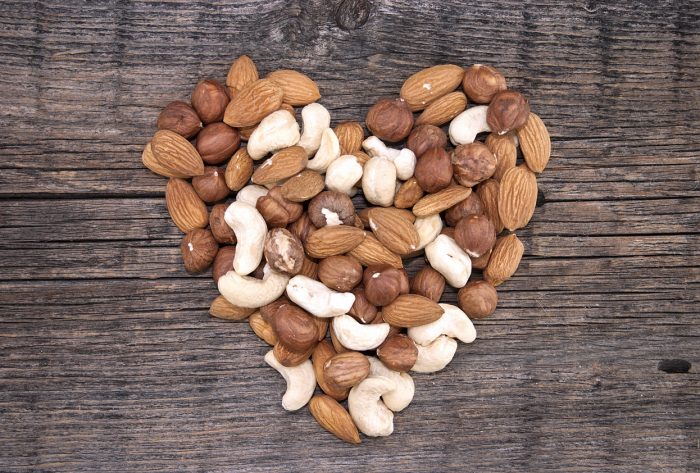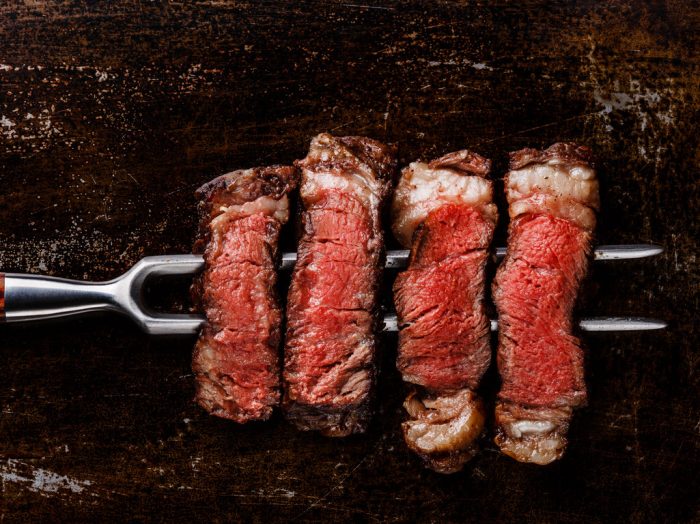Nuts are delicious and nutritious! But which ones are good for you, and which ones would push you into a strict diet regimen? Find out which are the best and worst nuts for your health!
They’re full of healthy fats that nourish your heart. They are rich in protein, minerals, and vitamins. They also seem to fight chronic inflammation. But which ones are the healthiest, and which ones will make you not fit in your favorite jeans? We contrast and compare the best and worst nuts for you to eat.
Best and worst nuts – the key is moderation
First of all, remember that all of the best and worst nuts are full of fats and calories, so, like with any other healthy thing on the planet, there can be too much of a good thing.
The critical information to remember is that consuming a handful of nuts is healthy and can be a tasty snack until your next serious meal. But if you overdo it and don’t stop till you get enough, they will ruin your diet. Especially if you mix them with some sugary or salty toppings.
Diet-friendly nuts: almonds, cashews, pistachios
These have the least calories and will serve you best in your diet. They contain omega-3 fatty acids, protein, and fiber. One ounce of these types of nuts has around 160 calories, 5-6 grams protein, and 13-14 grams fat. As with any kinds of nuts, they are best consumed raw or dry roasted, without salt.
Store-bought roasted nuts are sometimes heated in hydrogenated or omega-6 unhealthy fats, or they’ve been subjected to such high temperatures that they have no more nutrients for you.
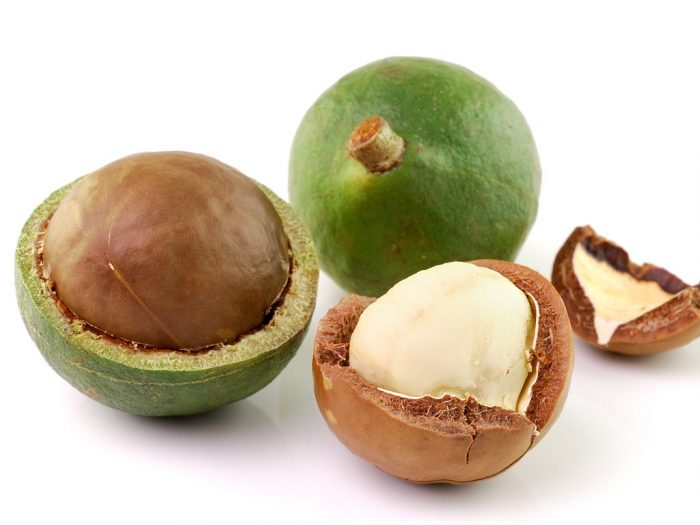
Fattening nuts: macadamia nuts, pecans
These have about 200 calories an ounce, 20-21 grams fat, and only 2-3 grams protein. Keep in mind that they are fattier than the other nuts. So, if you’re calorie-counting for your diet, remove them from your meal plan, or add just a few in your salads. That doesn’t mean they’re not good for your health!
Macadamia nuts are rich in vitamin A, iron, thiamine, riboflavin, and niacin. They also contain smaller amounts of selenium, calcium, phosphorus, potassium, and magnesium.
Pecans are rich in antioxidants that keep you young and fresh, while just one ounce of them provide 10 percent of the fiber you need daily. They rank among the top 15 foods rich in antioxidants.
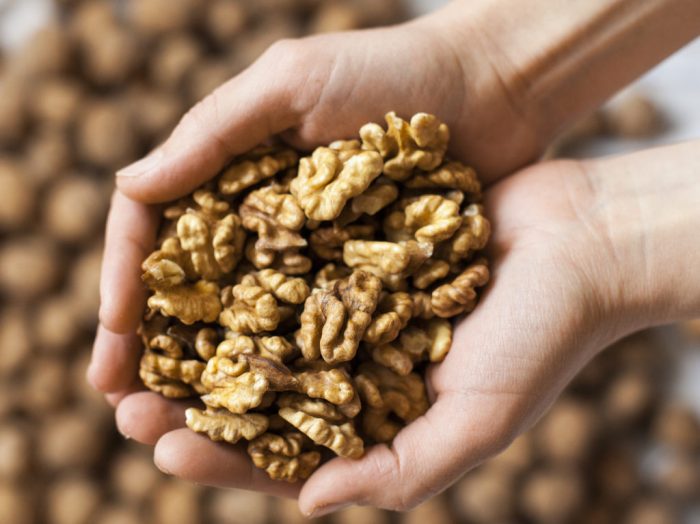
Walnuts protect your heart from being broken
They’re the best nuts for the center of your circulatory system. They contain alpha linoleic acid or ALA, a helping hand against arrhythmias. They are as good as olive oil when it comes to reducing inflammation and oxidation in the arteries after you indulge in a fatty meal.
What’s the daily recommended dose? Eight walnuts a day. They contain more than 19 vitamins and minerals – including vitamin A, vitamin E, folic acid, calcium, magnesium, phosphorus, potassium, several B vitamins, and zinc. One ounce of pecans provides 10 percent of the recommended daily value for fiber.
A nutty brain
Peanuts – even though they’re technically legumes – are still generally referred to as nuts. They have a high concentration of folate, a mineral that helps your brain development and protects it from cognitive decline. Consuming peanuts is healthy for pregnant women because folate protects the unborn babies from congenital disabilities.
Peanuts also contain healthy fats and vitamin E. One ounce of peanuts contains about 170 calories, 7 grams protein and 14 grams fat.
Brazil nuts and pecans, the man’s nuts!
Brazil nuts contain a lot of selenium, a mineral which may protect men against prostate cancer and other diseases. And one nut a day is enough for your optimal dose of selenium. Don’t overdo it, because a larger quantity may be a risk factor for type-2 diabetes. One ounce of Brazil nuts contains about 190 calories, 19 grams fat, and 4 grams protein.
Pecans are also very male-friendly. They have a high concentration of beta-sitosterol, a natural plant steroid which relieves the painful symptoms of an enlarged prostate. One ounce of pecans contains about 200 calories, 21 grams fat, and 3 grams protein.
Almonds prevent disease
They are very rich in calcium, more so than any other nut, which means that they’re a great tool in your diet toolbox. They’re also pretty low on calories, but rich in fiber and vitamin E, an antioxidant which helps fight inflammation and perhaps even lung cancer!
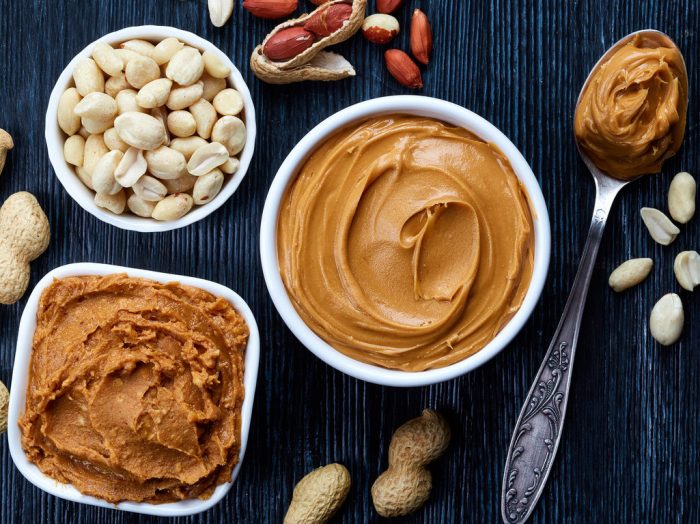
How to best eat nuts for your health
We recommend you make your trail mix, by picking and choosing your favorite nuts. Add more of the ones lower in calories and just a few of the fatter nuts, for a different texture and flavor. Combine some almonds, walnuts, pistachio, and pecan.
For the best effects, you should pair them up with a healthy carb, a complex carbohydrate like fruit or fruit juice. The combo will help slow down your digestion and the breakdown of sugar in your body.
Try some crunchy nuts in your salad – you can roast them a little at home -, or pair them with some Greek yogurt or oatmeal. Better yet, have some nut butter spread over a few slices of fruit!

